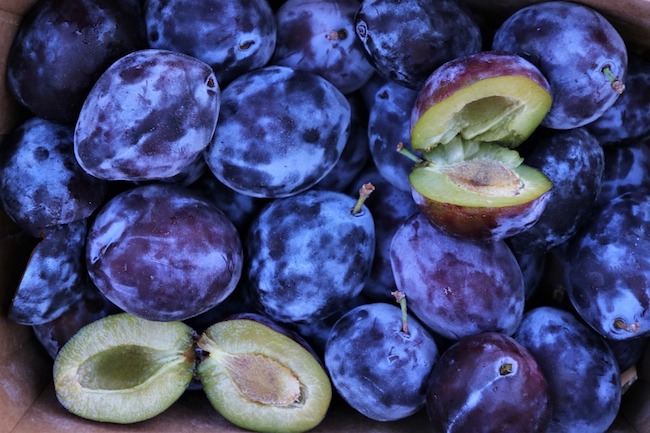Study shows eating prunes daily can help prevent bone loss By Zoey Sky for Food Science
People often eat prunes to boost their digestive health, but a study published in the American Journal of Clinical Nutrition shows that consuming a handful of prunes a day may also help prevent bone loss when you are older.
Researchers from Penn State University reported that women in their 60s who consumed prunes had significantly less bone loss in their hips in a year compared to those who didn’t eat the dried fruits. This suggests that prunes can help reduce inflammation in the body, which is a key driver of bone loss.
Older women are at higher risk of weakened bones because menopausecan raise inflammation levels in the body. At least 20 percent of women older than 50 have osteoporosis, a condition that results in weak or brittle bones. In contrast, only four percent of men of the same age develop the debilitating condition.
According to data, at least 44 million Americans have low bone mass. (Related: Dried plums show promise in effectively preventing colon cancer.)
Prunes found to boost bone density
The researchers recruited 235 women for the study. The volunteers had an average age of 62 and had already gone through menopause.
The participants were split into three equal groups:
- One group didn’t consume prunes.
- Another group consumed at least 50 grams (g) of prunes a day, or four to six pieces daily.
- The last group consumed 100g of prunes, or 10 to 12 pieces daily.
The volunteers ate the “Improved French” prune variety, a type of La Petite D’Agen native to the South West of France. All of their diet included calcium and vitamin D3 supplements, which can also help prevent bone loss.
The research team used scans to measure bone density in the hip, neck and hip socket at the start of the study, after six months and after one year. They found that the hips of the non-eaters had an estimated 1.1 percent loss of bone density a year after the study began.
Meanwhile, the bone density of those who consumed four to six prunes a day barely shifted.
The result was similar for the group that ate more prunes, but the researchers noted that any protective effect could be masked because of its much higher dropout rate.
Blood tests also showed that the women who consumed prunes had significantly lower inflammation levels than those who did not. There was no significant documented difference in bone mass in the spine or hip socket between the groups one year after the study began.
The researchers also reported that there was no significant difference in the risk of hip fractures between the three groups.
Dr. Mary Jane de Souza, the study leader and a physiotherapist at Penn State, said eating four to six prunes a day was “well tolerated.”
“Given that there was high compliance and retention at the 50g dosage over 12 months, we propose that the 50g dose represents a valuable nonpharmacologic treatment strategy that can be used to preserve hip bone mass density in postmenopausal women and possibly reduce hip fracture risk,” concluded Souza and her colleagues.
During the menstrual cycle, the hormone estrogen is released to thicken the lining of the uterus in preparation for the possibility of a pregnancy. This also helps reduce inflammation, which ensures that women don’t lose bone density.
But the ovaries stop manufacturing estrogen after menopause, leading to a rise in inflammation levels. This affects osteoclasts, the cells responsible for building and maintaining bone, increasing women’s risk of having weaker or brittle bones.
Experts believe that prunes could help maintain bone density since the dried fruits contain antioxidant polyphenols, which can help reduce inflammation and boost the activity of osteoclasts.
Prunes also contain magnesium and vitamin K, two nutrients that are important for maintaining strong, healthy bones.
Tips for incorporating prunes into a balanced diet
Here are some suggestions on how to add more prunes to your regular diet:
- Eat prunes alone as a snack.
- Add prunes to breakfast oatmeal.
- Mix prunes with nuts, other dried fruits like apricots and dark chocolate chips to make a healthy trail mix.
- Add prunes to baked goods.
- Blend prunes or use prune juice to make nutritious drinks or smoothies.
- Puree prunes and eat them as “prune butter” or jam.
- Add prunes to a savory stew for a delicious flavor boost.
Follow a balanced diet and eat prunes daily to boost bone health and prevent bone loss.




